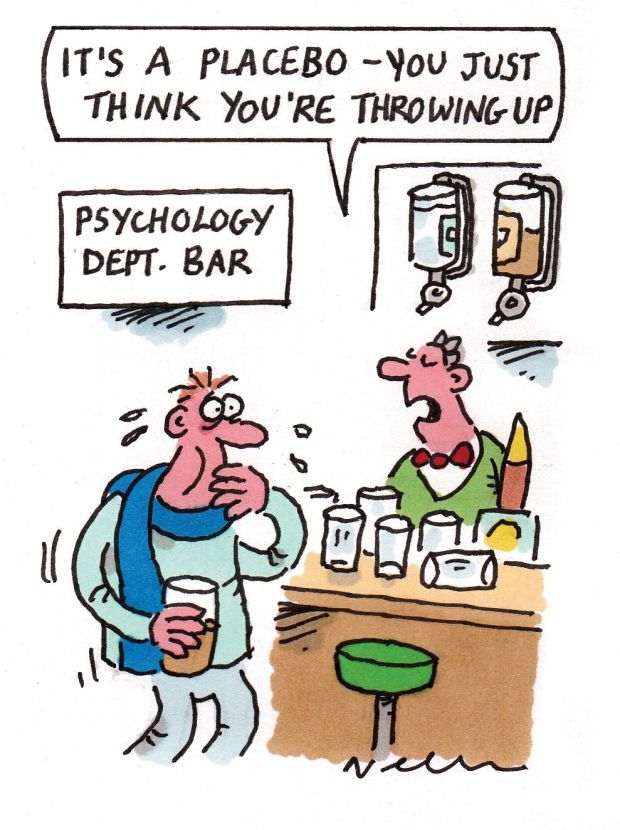
- It has bar stools and beer pumps, but the new “pub” at London South Bank University is not what it seems. In fact it is “an elaborate set, built at a cost of £20,000 by the psychology department; a lab bar, where customers are guinea pigs”, The Guardian reported on 18 February. Room J-407 at London South Bank is designed to study the effects of alcohol on behaviour and is run by Tony Moss, head of psychology. Some drinks will be placebos, with ethanol rubbed on glasses so they smell of alcohol. So “whether there is any actual alcohol in the drink will depend” said Dr Moss, sounding like the kind of pub landlord who likes to water down the spirits.
- Prince William has had a busy time recently: high-fiving Tinie Tempah at the Baftas last week, shifting sandbags in a flood-hit Berkshire village and reportedly enjoying a hunting holiday in Spain shooting wild boar and stags with his brother. Yet on 7 January, Prince William began an “intensive”, individually “tailored” 10-week course in agricultural management at the University of Cambridge, preparing him for the day when he inherits the Duchy of Cornwall estate. Clearly there is still time for other pursuits, meaning William’s course must be tailored to a Windsor-suitable level of academic intensity.
- University applicants should avoid the “frantic self-advertisement” of contestants in The Apprentice, the University of Southampton has warned potential English students. The Sunday Times reported on 16 February that Ucas personal statements are now littered with statements influenced by the BBC show. One psychology applicant wrote: “Thomas Edison made fantastic discoveries, which changed his life and this world for ever, and by reading this personal statement you are doing the same.” And a drama hopeful said that “the first time this applicant was on stage was inside my mother’s womb”. All deeply depressing – and highly likely to result in a reality show-style “journey” straight to the waste-paper basket.
- The Labour Party plans to “decapitate” the Liberal Democrats by building on student discontent to unseat Nick Clegg. The Lib Dem leader is to come under pressure in his Sheffield Hallam constituency, the Daily Mail reported on 18 February. “We are going to go after Clegg hard…although he’s got a big majority, it is very soft,” said a Labour National Executive Committee source, dicing with innuendo. “A lot of them are students and there is a huge amount of anger locally about the coalition’s cuts,” he added. The campaign posters will look after themselves: the National Union of Students has a lovely picture of a grinning Mr Clegg signing up to its pledge to vote against higher fees.
- The Russell Group has appointed former Ofqual chief executive Isabel Nisbet to lead its work on A-level reform, it was announced on 18 February. Ms Nisbet, currently regional director of education for Cambridge International Examinations’ South East Asia division, will become executive director of the group’s A Level Content Advisory Board, which will revamp a clutch of A levels and oversee standards in the long term. The appointment of a former quango head (Ms Nisbet ran the now defunct Qualifications and Curriculum Authority) from the old regulatory regime may, however, disappoint education secretary Michael Gove who is keen for academics from the Russell Group to lead his A-level revolution.
- The Office of Fair Trading has written to universities warning them to review rules that stop students from graduating if they have non-tuition fee debts – a practice that could breach consumer laws. In a report published on 18 February, the OFT analysed the terms and conditions of 115 UK institutions, and found that about 75 per cent include provision to prevent students from graduating or moving to the next year of their course if they owe debts for university accommodation, childcare or have failed to return library books on time. The OFT said the results of its investigation “will be fed into” its call for information about undergraduate higher education in England. So this week’s announcement may be a starter for the more substantial main course: an expected market study of English higher education by the new Competition and Markets Authority – likely to have a major impact on the sector.
Register to continue
Why register?
- Registration is free and only takes a moment
- Once registered, you can read 3 articles a month
- Sign up for our newsletter
Subscribe
Or subscribe for unlimited access to:
- Unlimited access to news, views, insights & reviews
- Digital editions
- Digital access to THE’s university and college rankings analysis
Already registered or a current subscriber?
Please or to read this article.
